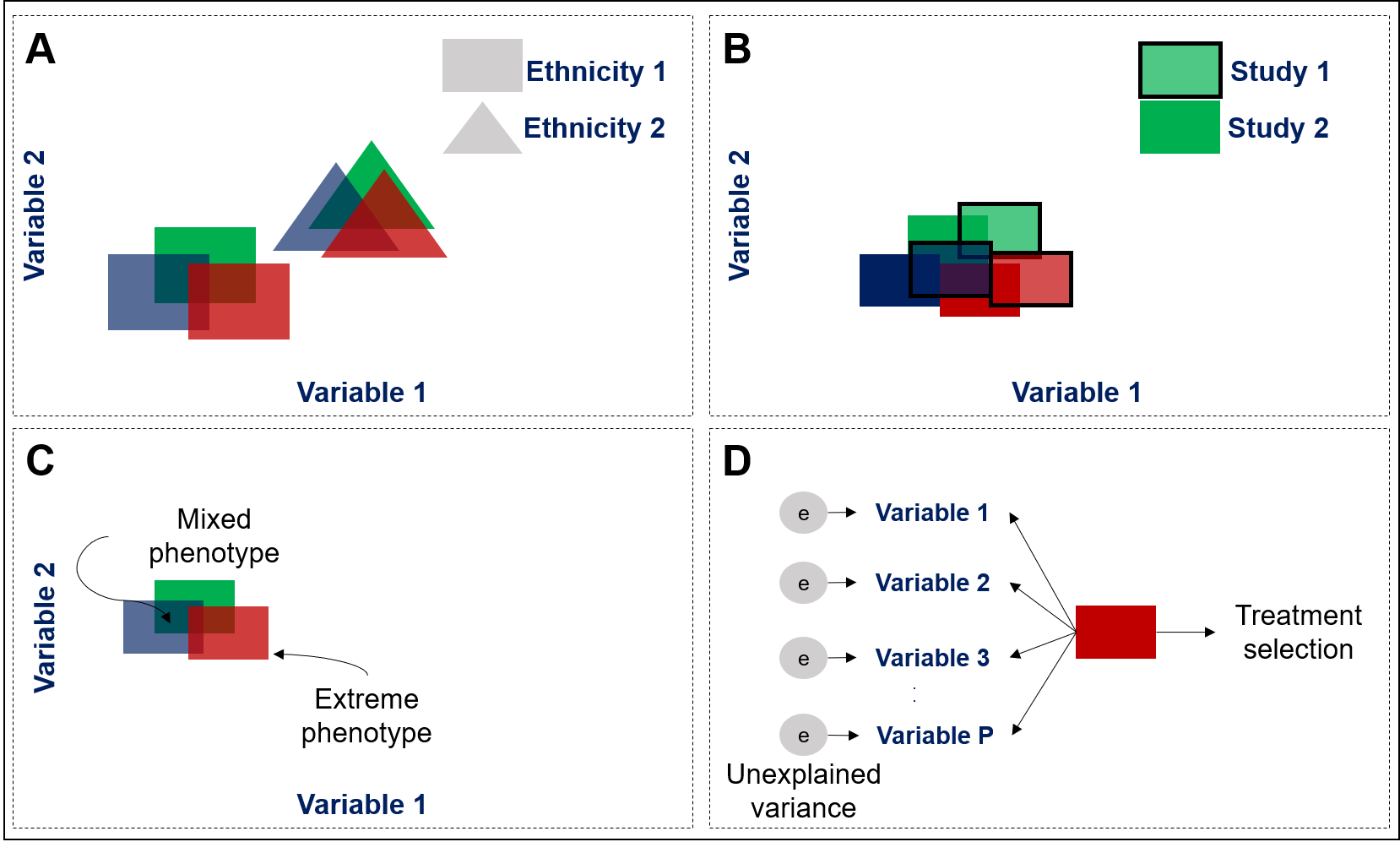Subgroups of Diabetes
Precision Medicine in Type 2 Diabetes
A novel approach for precision medicine for diabetes involves classifying newly diagnosed type 2 diabetes patients into data-driven subphenotypes based on their clinical characteristics (e.g., age at diagnosis, body mass index, HbA1c, HOMA2-IR, HOMA2-B). These subphenotypes vary in their genetic profile, presentation, responses to antihyperglycemic medication and risk of diabetes-related complications. However, reasons such as unavailability of HOMA2 indices in routinely collected clinical data, scarcity of data on subphenotypes derived from non-European populations, non-replicable cut-points for clinical variables and hard cluster assignment ignoring multifactorial nature of diabetes, preclude the widespread translation of this phenotyping approach from cohort studies to clinical practice.
This is ongoing work with Zhongyu Li and Jiali Guo.

Publications
- Li 2024 MedRxiv (Under Review) pre-print on translating subtypes from cohort studies to Epic Cosmos
- Guo 2024 MedRxiv (Under Review) pre-print on subtypes of newly diagnosed diabetes among youth
- Varghese 2023 Lancet Diabetes & Endocrinology Correspondence on Replicability of subphenotypes
- Varghese 2023 Primary Care Diabetes Brief Report on Ethnic Differences of subphenotypes
- Varghese 2021 Diabetes Technology & Therapeutics on CGM-derived profiles
Getting Involved
These projects are ideal for advanced masters or doctoral students who want hands-on experience with cohort studies and electronic health record data.